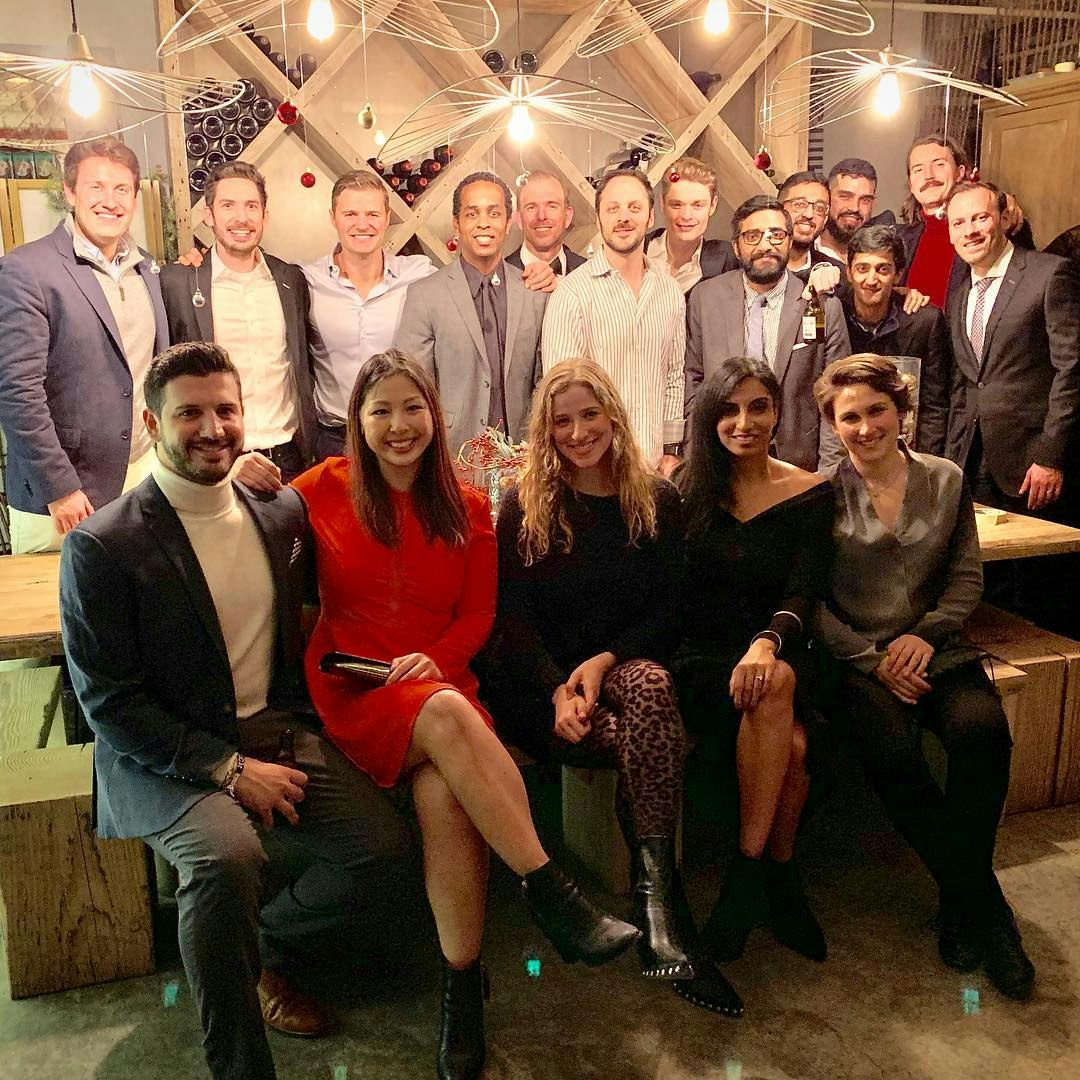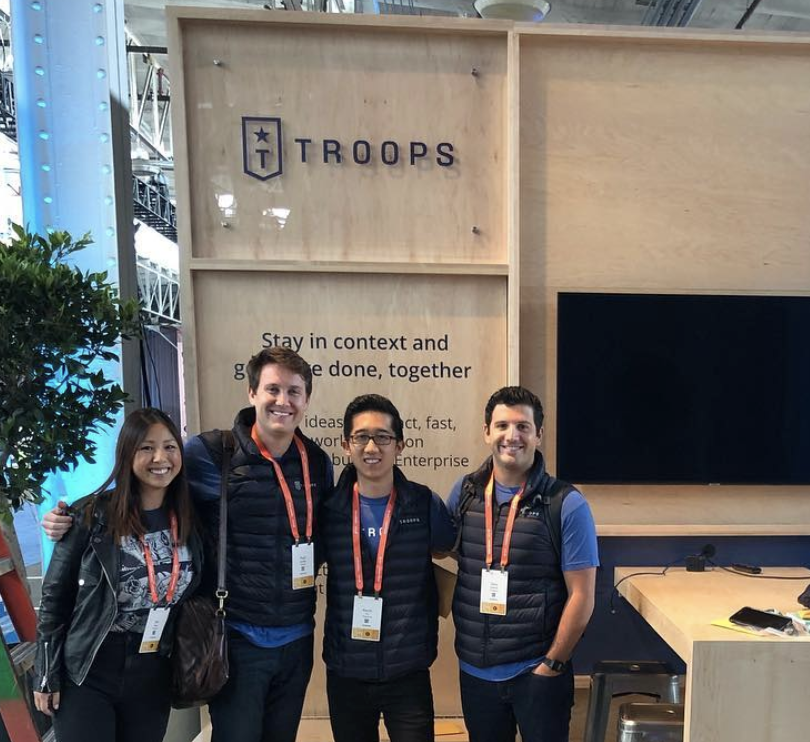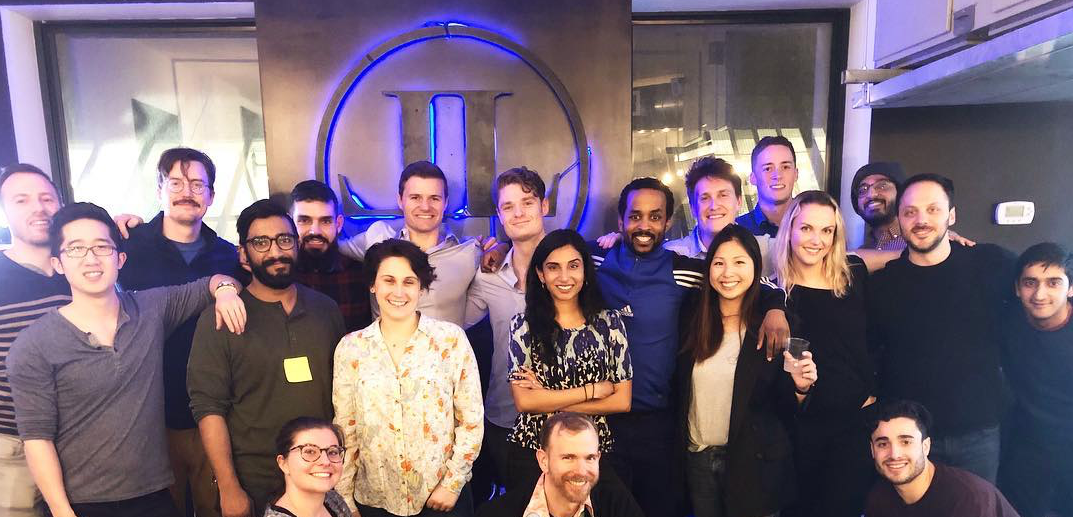Functional Workplaces: Troops - Making Data Actionable
Mihaela Popa
7 Jun 2022
•
11 min read
The world of Slack and Microsoft Team integrations isn’t probably something you think about much on a daily basis. Just like a Chrome extension, the add-ons you download probably get bundled up in your mind and it’s possible that you couldn’t even name the ones you use most often.
Well at Troops, it’s a little different. Troops is a bot specially designed to help Sales teams operate in the most effective, efficient way. CRMs are a huge industry, estimated to be worth over $80 billion by 2025, but they’re still very manual. Even at huge companies, sales teams are manually inputting data and spending hours on time-consuming tasks that could be automated into workflows.
This is where Troops comes in. Troops exists because with the emergence of Slack and Microsoft Team as the communication platform within organizations, they realized there was an opportunity to help customer facing teams do three things:
- Win more by bringing the commercial team and the rest of the company together in one place to leverage the collective knowledge.
- Drive efficiency by updating CRMs such as Salesforce or Hubspot from Slack in far less time than it takes to enter it directly in salesforce today.
- Improve rep performance by enabling the key processes in your commercial organization to keep everyone on track with what they’re supposed to do, provide up-to-date visibility, enable real-time coaching moments and reinforce what you’ve taught them.
Troops does this by making it easy to interact with your CRM ecosystem right from Slack or Microsoft Teams as well as configuring workflows so things don't slip through the cracks. Fundamentally, the team at Troops believe that the future of “getting things done” is going to look a lot less like static fields and forms, and more like a conversation with a human being and that messaging, or conversation, will be the de-facto UI for a growing number of software applications. The “bots” or human-like inhabitants of these interfaces will not only be highly responsive to real-time requests, seamlessly cutting out a myriad of clicks, but also be able to intelligently suggest actions based on my process and workflow across all the tools I already use.
Since starting out, Troops has been on the up and up. With investment from Slack, two offices in New York and San Francisco and a rapidly growing tech team, they’ve facilitated 2m+ of workflows from more than 1000 clients. Recently, Troops announced that its revenue communications platform is now available for Hubspot, Intercom, Zendesk, and Jira enterprise among others.
We’ve been working with Troops for years to help them find great Functional developers and have been really impressed with their growth.
We sat down with co-founder Greg Ratner to discover a little bit more about the Troops working culture, tech stack and how they’ve built such a successful product.
To see jobs from Troops and other great employers, sign up to Functional Works here!
Let's start with an easy one, what makes working at Troops unique?
Troops is an exciting place to be because it’s a product that doesn’t really have any real competitors. No one’s trying to do the same thing in our niche of workflow automation. I would say that when we made an early decision to go all-in on Slack, we didn’t realise how important that would be. We want to be a main engine powering activity on Slack.
Another huge part of why Troops is such an interesting company is that we have a pretty radical approach to transparency. A lot of companies might say that but we really practise it. Everyone always knows how we’re doing as a business, down to how the most recent funding round is going to our burn rate, to how much money we have in the bank.
We share everything from our board meetings with the team. We want people to feel connected to all aspects of the business, to see it as if they were on the board. It makes our engineers feel more connected to the whole business.
It sounds like you’re almost giving them the experience to start their own tech companies?
Absolutely. And that’s intentional. We realise that having the best tech talent means that there’s a strong likelihood that they’ll go on to start their own companies. If we can teach them some of the skills they’re going to need then we’re happy to. We hope that the culture of transparency we’ve created makes our team feel like they can be honest with their aspirations and in turn, we can help them achieve them.
Developers no longer want to just learn how to write great code, they want to learn how to pitch, how to conduct a funding round, and other skills essential to launching a company.
We’re pretty open with our team and they have monthly meetings to discuss their career progression and goals. We do weekly manager meetings and have quarterly reviews to talk about the bigger picture stuff and their overall direction.
What’s been the biggest achievement you’ve had in the last year and where is Troops headed into the future?
Troops was one of the first companies that said we believe that communication platforms like Slack and now Microsoft Teams are going to become the new web browser for work. This is where people are going to be spending a lot of time and they're going to be applications built on top of it. And we were one of the first applications in the Slack App Store, and for a long time we were very early to market. There's a small percentage of companies who adopted this and then it grew slowly over time. In the past year, a lot has happened, our idea has been incredibly validated by Saleforce buying Slack, and Marc Benioff announcing that he's planning to rebuild all Salesforce products to be Slack first, a concept that seemed crazy to him a few years ago when it was getting started.
And now this is an entire multibillion-dollar company that has been reoriented around this. So that's incredibly exciting and it validates our vision. And, on the heels of this announcement Troops has expanded beyond Salesforce and Slack, we now are a truly multiplatform player where we support both Teams and Slack and we support a lot of systems of record. So CRMs like HubSpot, Zendesk, Intercom and many others.
And this is getting really exciting because more and more people realize this vision and there's a ton of interest from many different companies. We're doing a partnership with Salesforce by cross-selling on their app exchange, we're doing a partnership with Microsoft and their Teams. We are also partnering with other companies like Zendesk to build offerings for their CRM.
At the same time, we really see ourselves as just becoming more and more important for many other teams and having coverage across more tools. So you'll be able to have a 360-degree view of all your data.
The classic way is to take all that data, dump it into a data warehouse and have a data team, try to make sense of it. Troops is doing it differently by pulling data from different places and combining it inside of Troops, and so if something happens in Salesforce and there's information about it in HubSpot and Zendesk, you can now bring all this information together, correlate it and trigger some sort of notification about what the next action should be taken from all those systems.
So we're in the early stages of that right now. We support multiple systems. We can correlate across them. But that's something that we're actively working on in the future, as opposed to having a data warehouse and trying to monitor all this data.
You can now say when something happens in Salesforce and the state in Zendesk is something else, notify the person who needs to know and tell them what to do next.
So that's truly the future where information silos will be broken down. And without having human capital as well as significant technology investments, you'll be able to bring in all this information together in one place so people can be more efficient at doing their jobs and spend more time doing creative tasks as opposed to data entering or data monitoring or tracking down information.
We talked with you a few years ago and you said remote working is something you want to embrace more, how are things now?
Yes, we've been remote and distributed for two years now. A year before Covid we opened up a San Francisco office. And it was a two hub situation that really helped us build a remote culture across the entire team. We had executives on the West Coast, which really helped with incentivizing people to always have Zooms and good remote hygiene practices. And since then, we've started hiring outside of San Francisco and adding fully remote employees. So by the time Covid hit, we already had five or six employees that have been completely remote for a long time. So obviously with Covid, we were able to transition to remote pretty seamlessly. And now more of the teams that were attached to one of our hubs, San Francisco or New York, have since been moving around.
Now we have people all over the country. For now, for security and compliance reasons everybody's US-based as their primary residence. Other than that, it's a fully remote culture. We're planning to continue doubling down on it in the future. We have some office space in New York. If people want to use it as a coworking space, however, there's no requirement to come on in any other offices.
Now that you are fully remote, are you doing anything different to maintain the same company culture?
I think we're always experimenting and trying to introduce different activities. We have social events, which now are over zoom. We tried to do smaller meetings and get-togethers. We'll try to do in-person events and fly people out as the opportunity arises so we can have in-person meetings every so often, targeting once a quarter, to meet with the team. We also found that a lot of the culture is built over collaborating on the work and working closely with others versus, kind of forced happy hours and things of that nature, which there's a lot of fatigue in the industry with. So a lot of it is just more collaborative projects and teams of people working closely together to effectively communicate.
Are you offering any benefits that are different now that people work remotely?
Right now it's the same package. I think people continue to take advantage of flexible times. We've always had that policy even in person, so people can take time off and especially during the pandemic and as we're coming out of the pandemic then I encourage everybody to take a recharge time as often as needed and take bigger breaks to really reset. So that's a big part of our culture.
So what makes an engineer successful at Troops, what are the qualities you’re looking for?
Aligning with our values is a big thing - we want self-starters that take pride and ownership in their work. A lot of what we do is still a little scrappy and not amazingly polished because we’re still scaling. So our best developers are comfortable building from scratch and having a lot of autonomy. Troops is a place where it’s as good as you make it, there’s support, but you have to show leadership, if you show it you’ll get it.
There’s a lot of trust involved, so we want people that make smart decisions and who are in this for the right reasons. A lot of programmers have an affinity to the more esoteric side of things, the sort of theoretical challenges that might be interesting in the abstract. But we’re looking for people who are much more connected to the product, who have a genuine desire to help customers and change the way people work for the better.
Being customer-focused is hugely important, and probably one of the biggest parts of being successful here.
Diversity in tech is something that is rightly getting a lot of focus at the moment, is Troops doing anything to change the makeup of its team?
At Troops we strongly believe that a diverse set of people and diversity of thought is necessary to create the best product for our customers. Given the landscape and makeup of the tech industry, particularly when it comes to sales and engineering, achieving this can be quite challenging.
As a company we definitely made a lot of investments in people with different backgrounds. That goes across age, gender, race and other dimensions. We definitely appreciate spirited debates and different opinions and different perspectives. That's really important and that's been ingrained in our culture since day one.
And we definitely feel like bringing people with different viewpoints and different perspectives has really helped us over the years. So we continue to double down as we recruit. We definitely look for people who don't look the same as us, doesn't matter what their dimension is, because we think that there is a real strength in using different perspectives in decision making.
Do you have any initiatives where you would help diverse candidates to get into tech in the first place?
Over time, we've done internship programs where we can have aspiring talent get involved. Historically, Troops engineering team has been made up of very senior engineers, which is why it is a challenging proposition to have very senior people come in from the start. But as we look to bring more junior engineers in the future, that's a big consideration.
Obviously retention is another issue in the tech world, so how do you keep your best engineers?
We have a lot of the sort of perks you’d expect. Unlimited vacation, citi bike sponsorship, happy hours, and team building events - but these aren’t the things that will keep our best talent. It’s more about how we treat people and the culture and values we’ve created. Things like the trajectory of the company and the products and impact on customers are important, which is another reason we make it super visible to our tech team .
Technology wise, why did you pick Scala to work with?
Our advisor, Gokul Rajaram (Square’s Product and Engineering Lead as well as the "Godfather" of AdSense) always asks: "What are you optimising for"? The engineering team is optimising for easy product iterations, while building scalable infrastructure.
Scala's powerful type system, functional idioms, and concise patterns allow our engineering team to quickly model the business solution. The first class immutable data structures and safe asynchronous/parallelized constructs allow us to easily build distributed systems. Best of all, many great teams (Twitter, SoundCloud, Gilt, etc.) have already trail blazed the path to successfully managing large Scala codebases in production.
Like any solution, Scala comes with its own set of tradeoffs. Its learning curve is steeper than many imperative languages and writing in a purely functional style requires an adjustment in thinking. Given that Scala is a relative newcomer to the mainstream development stage, experienced talent can be harder to find. Despite these drawbacks, in our experience, when we found developers that are attracted to functional programming, they often tend to be very strong.
(For more info on how Troops uses Scala, check out this blog on Stackshare.)
How did you end up using Typescript?
This is an example of our culture working the way we want it to. One of our developers suggested moving to Typescript, pitched it, and presented a clear and compelling business case on why it made sense for our front end. Its compatibility with Functional paradigms was a huge plus and it was great to be able to support someone from our team by adopting a fairly major suggestion.
The bottom-up implementation worked really well. He was really invested in making the change successful and spent time helping people, handling the incremental migration, and making sure everyone was bought into it.
And finally, tell us why should someone join Troops now?
I would say this is the most exciting time to join Troops. We finally have a ton of validation from the market, we're growing. At the same time, the team is still small, so it's a very entrepreneurial mindset. It's a really flat structure. Our C-level executives work day to day with everybody on the team.
So you work cross-functionally across everything. There's a lot of opportunity for impact, decision-making, and then really seeing how your work impacts customers every day. At the same time we're looking at a lot of growth over the next couple of years and really maturing and expanding as a company. So it's just an exciting opportunity to be in the driver's seat as this transformation happens.
Sounds amazing. Thanks for chatting with us, Greg!
To see jobs from Troops and other great employers using Functional Languages, sign up to Functional Works here!
WorksHub
Jobs
Locations
Articles
Ground Floor, Verse Building, 18 Brunswick Place, London, N1 6DZ
108 E 16th Street, New York, NY 10003
Subscribe to our newsletter
Join over 111,000 others and get access to exclusive content, job opportunities and more!





